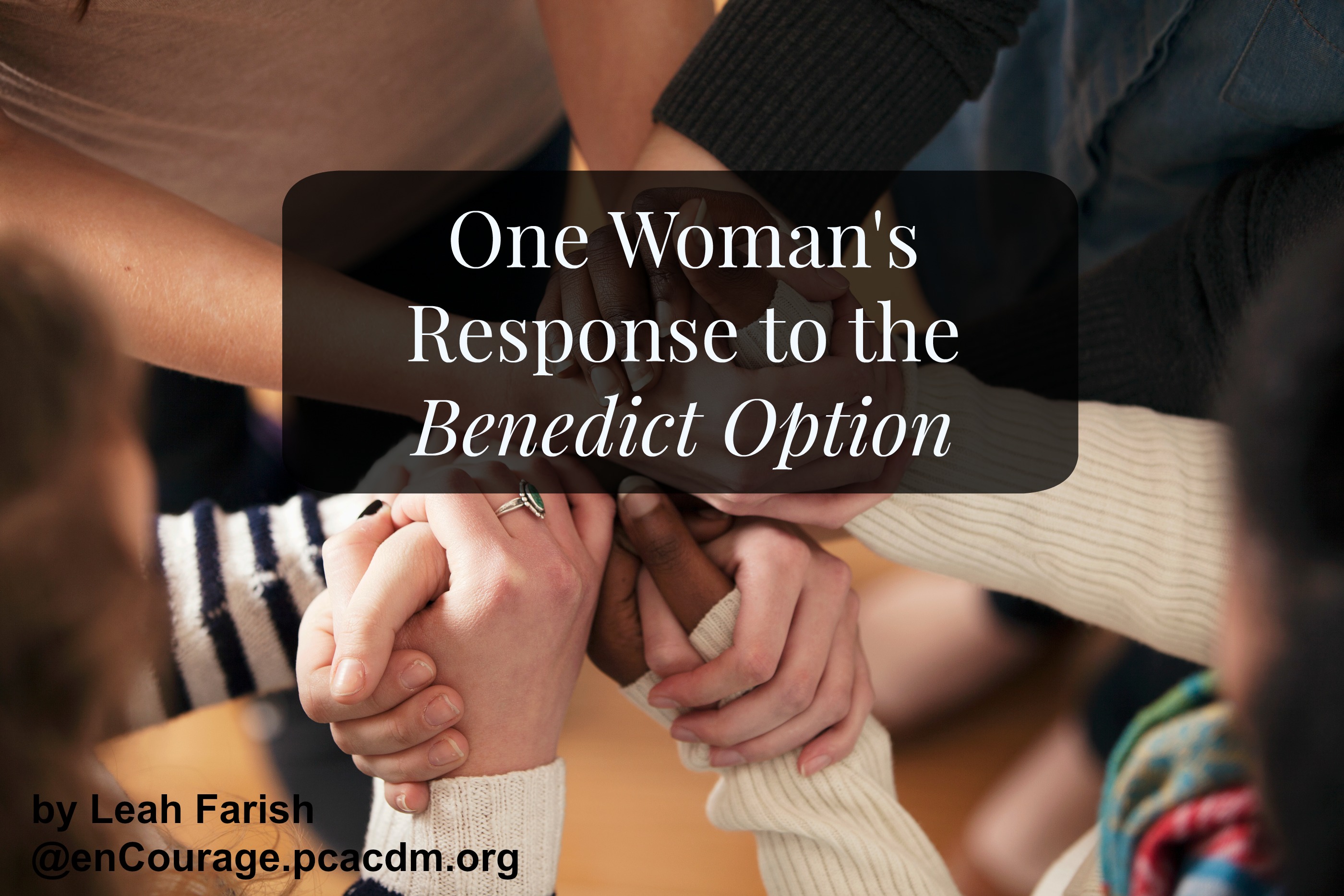LEAH FARISH|GUEST
Columnist Rod Dreher has written The Benedict Option to stimulate Christians to consider how evangelism and community can be lived out in 21st-century America. He assumes the dominant culture is hostile to Christianity and pernicious to it, especially to children, and is going to become more so. Thus he harks back to the example of St. Benedict, who wrote his Rule of monastic life in about 530 A.D. as he withdrew from the corruption of Rome on one side and the pagan hordes on the other.
Dreher said in a recent interview that “This is not our culture anymore…[so we have to] shore up our own group, our own sense of ourselves right now because the culture is so overwhelming.” He calls us to “quit piling up sandbags in a doomed effort to hold back the rising waters and instead to build an ark.”
Fostering Christian Community
The book reminds me that believers can sometimes minister better by and to single people, especially women, by promoting living in community. For the first time in American history, at least as many women live alone as live with family members. Psalm 68:6 says, “God sets the lonely in families.” This can happen in many ways; it can happen by families embracing lonely people but also by aggregating individuals into a communal setting.
Christians can flourish and witness in and from such settings. Jesus recognized that when the world says, “Behold, how these Christians love one another,” and sees the unity of the Body of Christ, that in itself is a testimony to Him. In John 17:23 Jesus prays for us in this way: “I in them and you in me—so that they may be brought to complete unity. Then the world will know that you sent me and have loved them even as you have loved me.”
Examples within our Reformed tradition include Francis Schaeffer’s L’Abri fellowship, which now exists in multiple locations, Project Neighborhood at Calvin College, Crossover Community Impact in Tulsa, and CityLights of New City Fellowship, PCA, in St Louis. These are exciting, innovative communities combining shared simple living with outreach to the poor, arts activities, and education initiatives are a demonstration of living in the world but not being of the world.
Less radical efforts to “strengthen that which remains” are embodied in efforts all over the country like homeschooling and co-op schooling, establishing websites / online communities like this one, and gardening with likeminded folks (as convents usually did originally). More and more PCA families have been trying their hand at these things, with women often making many of the daily efforts–going over Catechism with our kids for the fortieth time, or taking a meal to a new mother in church. Single women “shore up our own group” when they honor their physical and spiritual mothers, limit screen time to pursue chastity and simplicity, or teach Sunday school. Our homes can be places where, as C.S. Lewis says, we “come in out of the wind” of turmoil and unbelief. I recall my godly mother-in-law who, within the limitations of her few years remaining, made her apartment a welcoming listening post for others. Taking opportunity from the solitude she often had, she refocused on humility, prayer, and simplicity. Her last outing was to visit a friend frailer than she was.
No Matter What
But we must balance our “shoring up” with love for those still out there “in the wind.” Acting out of fear keeps us from looking beyond ourselves to address the needs of others. Perfect love—for our families, churches, and unbelievers—casts out fear. The woman of God smiles at the future. I Peter says that women are the daughters of Abraham’s family if they “do what is right and do not give way to fear.” 2 Peter points us to Lot, who was no model of cultural impact in a vicious city, yet if God delivered him, who, “while living among them, felt his righteous soul tormented day after day by their lawless deeds, then the Lord knows how to rescue the godly.”
If it’s good to live the Benedict Option now, it’s always been good. No matter whether revival or persecution comes, America is made “great again,” or an unexpected future emerges, we do well to keep telling our story to ourselves and others, to avoid greed, and to “do good, especially to those who are of the household of faith” (Gal. 6:10).
I had a conversation a couple of years ago with an Orthodox friend (this is also Rod Dreher’s faith). She said, “You know, maybe it would be good if persecution came. Maybe then we would unify, and be pure and bold, and start acting like the church.” I said, “Oh, let’s not wait!”
 Leah Farish teaches college courses on law, language, and public speaking in Oklahoma. She also heads a nonprofit which encourages volunteerism. Leah and her husband are members of Christ Presbyterian in Tulsa, where, being party animals, they are also preparing to celebrate the church’s 50th birthday.
Leah Farish teaches college courses on law, language, and public speaking in Oklahoma. She also heads a nonprofit which encourages volunteerism. Leah and her husband are members of Christ Presbyterian in Tulsa, where, being party animals, they are also preparing to celebrate the church’s 50th birthday.

